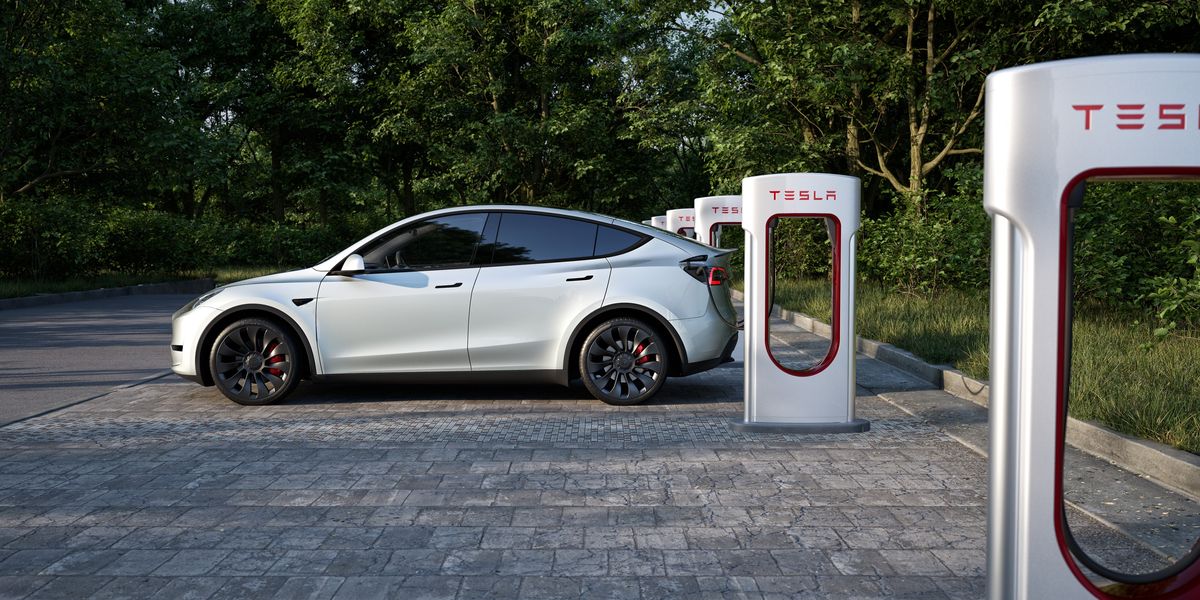Rishi Sunak could be facing backlash from his own party after more than 40 Conservative MPs and peers urged him to drop electric vehicle pledges, despite a vote in Parliament yesterday.
The Draft Vehicle Emissions Trading Schemes Order 2023 vote was held in Parliament last night, with 381 MPs supporting the measures, compared to just 37 voting against.
Prominent Conservatives including Suella Braverman, Iain Duncan Smith, Craig Mackinlay, Priti Patel and Jacob Rees-Mogg all voted against the motion.
The new measures are set to be introduced on January 1, 2024, and will see the introduction of trading schemes to allow vehicle manufacturers to adhere to new rules.
WATCH NOW: Rishi Sunak unveils major changes to 2030 petrol and diesel ban
Draft policy documents from the Government state: “The purpose of the Trading Schemes is to limit, or encourage the limitation of, the emission of greenhouse gas resulting from the registration of NZE (net zero emission) cars and NZE vans.”
The Zero Emission Vehicle (ZEV) mandate will be rolled out in the new year, with manufacturers being required to have 22 per cent of vehicles sold to be electric.
This quota will gradually rise in the coming years, rising to 80 per cent by the end of the decade and finally 100 per cent of sales in 2035.
Despite the overwhelming support from MPs on the new draft legislation, a number of high-ranking Conservatives wrote to the Prime Minister claiming that the ZEV mandate is “likely to cause enormous harm” to companies and drivers.
In a letter to the Prime Minister, Craig Mackinlay, chairman of the Net Zero Scrutiny Group, and other MPs slammed the “anti-motorist” and “anti-consumer” EV quotas.
The letter was sent on Saturday and reminded the Prime Minister about his net zero speech in September in which he pushed back the deadline to ban the sale of new petrol and diesel vehicles from 2030 to 2035.
It stated: “The legislation will enforce an aggressive ramp up of electric vehicle use to 80 per cent of new car sales in 2030 – regardless of what people would prefer or could afford.
“Many in the car industry do not regard this as a realistic aim, but the attempt to get there through legal coercion is likely to cause enormous harm.
“If the cost of buying and running an EV will become cheaper than petrol and diesel cars, mandating them with this law is unnecessary.
“This law is anti-consumer, anti-choice and anti-motorist, and will only leave the public poorer. Car ownership could once again be restricted to the privileged few,” The Telegraph reported.
The Government unveiled the outcome of its ZEV mandate consultation in October which set out how the industry will slash emissions rates in the coming years to meet the 2050 net zero goal.
These emissions trading schemes usually work on the “cap and trade” principle, where a cap is set on the total amount of certain greenhouse gases.
Schemes like this are already used across sectors and allow for manufacturers and companies to trade or buy emission allowances to meet quotas.
A spokesperson for the Government said: “We’re on the side of drivers, which is why we have set out a fairer, more proportionate route to net zero and pushed back the date to end new petrol and diesel car sales to 2035 – aligning the UK with other countries like France, Germany and Italy.
LATEST DEVELOPMENTS:
Rishi Sunak welcomed a £2billion funding boost to Nissan’s EV plant in Sunderland last month
PA
“We are also backing British jobs, with the Zero Emission Vehicle mandate giving the car industry the certainty they need to keep investing in the UK and employing skilled workers across the country.”










